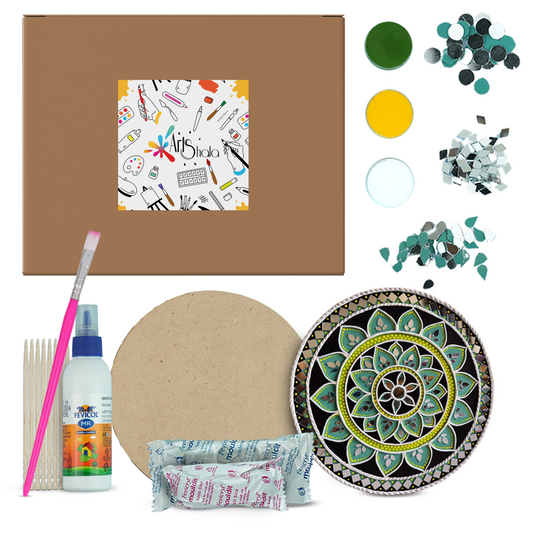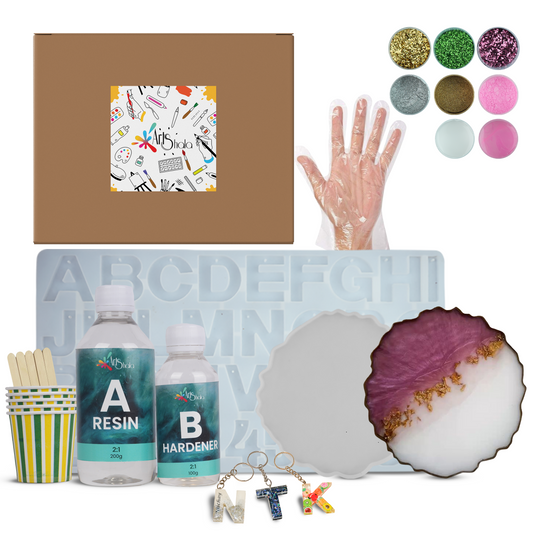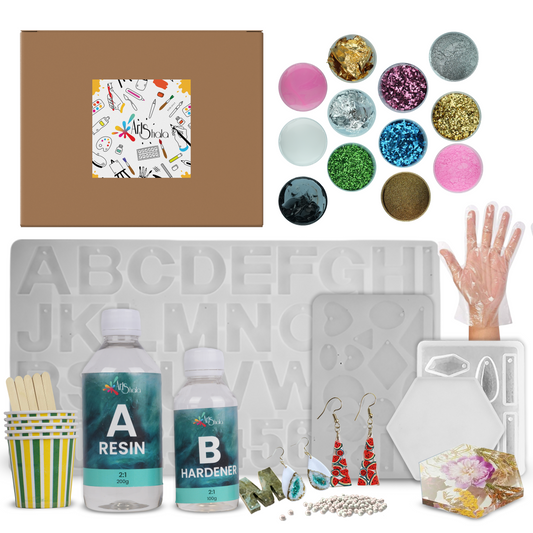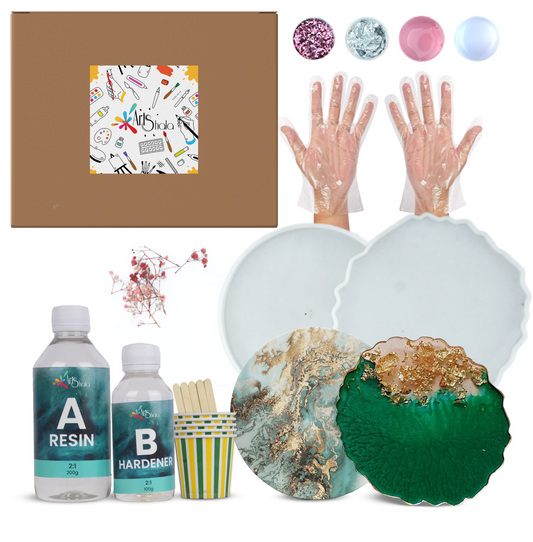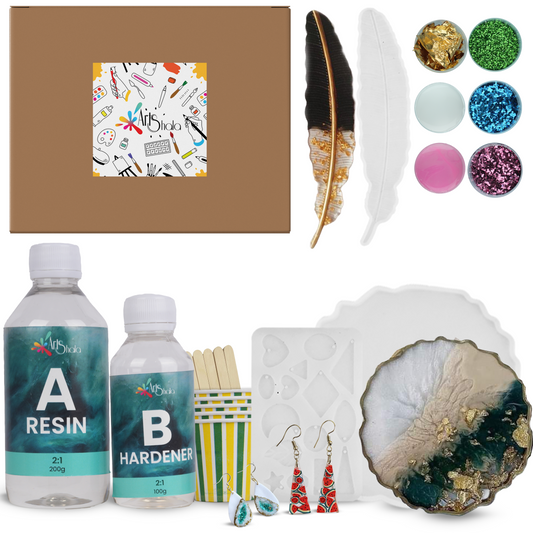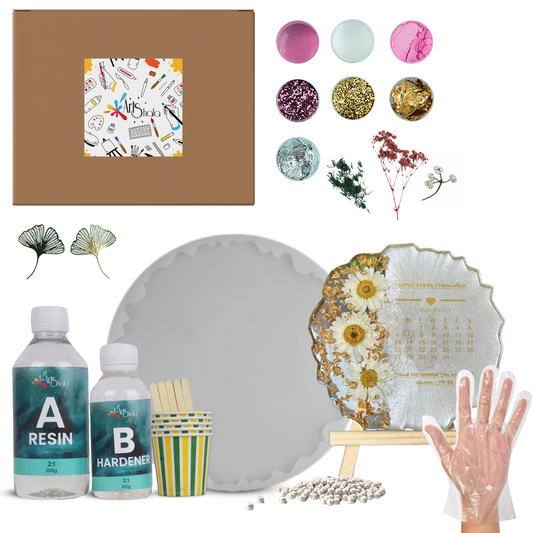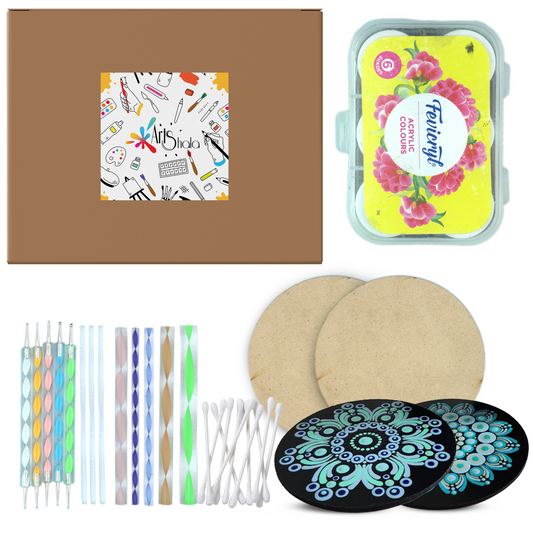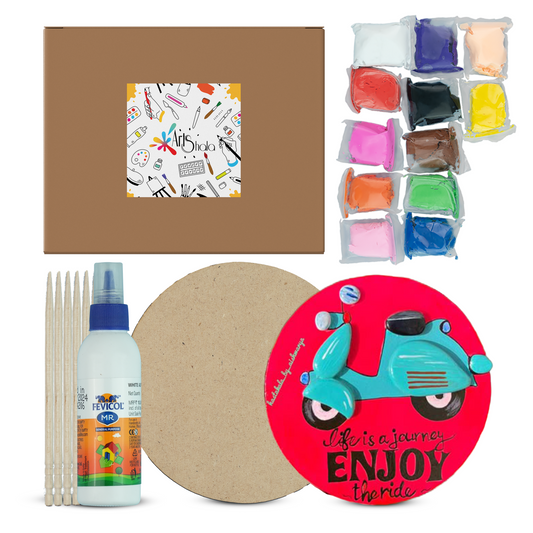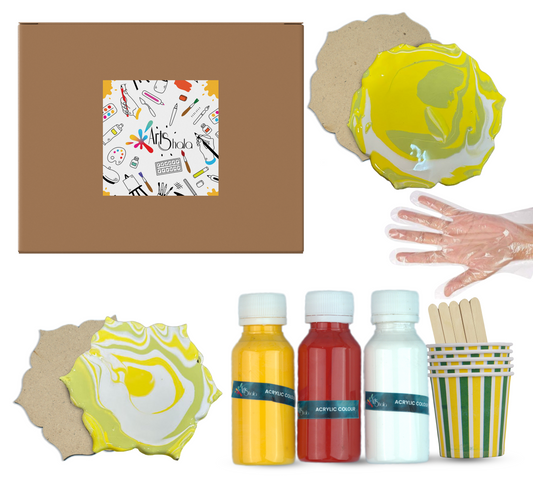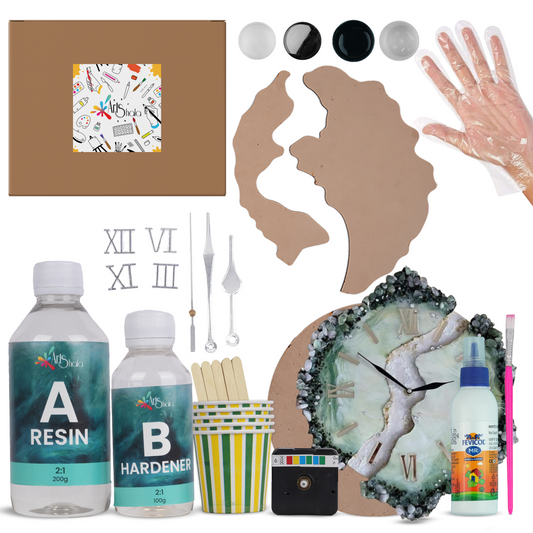Which Type of Resin Is Best for Making Coasters?
Resin is a versatile material that has gained popularity in various crafts, including creating coasters. Coasters made with resin are becoming increasingly popular in the DIY community due to their unique and customisable designs. If you're new to working with resin or interested in expanding your skills, consider joining a resin art workshop, where you can get hands-on guidance which allows you to learn various techniques for creating beautiful resin coasters. In this blog, we will provide you with valuable information on the best type of resin to use for coasters. So, let's get started.
What is Resin?
Resin is a synthetic material that starts as a liquid and hardens into a solid form. It is commonly used in crafts and art projects because of its ability to create a smooth and glossy finish. Resin can be tinted with pigments, mixed with additives like glitter or dried flowers, and moulded into various shapes and sizes.
Benefits of Resin Coasters
Coasters made with resin offer several benefits:
- Functionality: They protect your furniture from water rings and spills.
- Aesthetics: They add a touch of elegance to your living space.
- Customizability: You can create unique designs that match your personal style.
- Durability: Resin coasters are long-lasting and resistant to fading or discolouration.
Benefits of Using Epoxy Resin for Coasters
Epoxy resin offers several key advantages when it comes to creating coasters:
Durability
The long-lasting nature of epoxy resin makes it perfect for items that will be frequently used, like coasters. It ensures that the coasters can withstand daily wear and tear without losing their quality.
Heat Resistance
The high heat resistance of epoxy resin ensures that it won't get damaged or warped when hot beverages are placed on it. This feature is particularly important for coasters, as they often come into contact with hot mugs or cups.
Glossy Finish
Epoxy resin has the ability to create a smooth, glass-like finish, adding a professional touch to coasters and making them look more visually appealing. This glossy finish enhances the overall aesthetic of the coasters.
Quick Cure Time
The relatively quick cure time of epoxy resin allows for faster production of coasters compared to other types of resins that may take longer to harden. This is advantageous for individuals who want to create multiple coasters within a shorter timeframe.
Different Types of Epoxy Resin for Coasters
When it comes to creating resin coasters, choosing the right type of epoxy resin is crucial to achieving the desired results. Different formulations of epoxy resin offer unique characteristics that cater to specific needs and preferences. Let's get into the various types of epoxy resin suitable for making coasters:
Low Viscosity Epoxy Resin
Low-viscosity epoxy resin is characterised by its thin consistency, which makes it an ideal choice for creating coasters. The thin nature of this resin enables it to be easily poured and spread evenly in the coaster moulds, ensuring a smooth and uniform finish. This characteristic is particularly beneficial when working with intricate moulds or when incorporating multiple layers of colours or embellishments.
This type of epoxy resin is favoured by many coaster makers due to its ability to self-level and minimise the formation of air bubbles, resulting in a flawless surface on the coasters. Additionally, its low viscosity facilitates the penetration of the resin into porous materials such as wood or paper, allowing for stunning artistic effects and ensuring a solid bond between the resin and the embedded elements.
UV-Resistant Epoxy Resin
UV-resistant epoxy resin stands out as a top choice. This particular type of resin is designed to resist the damaging effects of sunlight, making it perfect for creating durable and long-lasting coasters. Here's why UV-resistant epoxy resin is an excellent option for your coaster projects:
- Protection Against Sunlight: UV-resistant epoxy resin offers great defence against the harmful impact of sunlight. Unlike regular epoxy resin that may turn yellow or discoloured when exposed to UV rays, this type of resin is formulated to resist such discolouration. As a result, your coasters will maintain their clarity and vibrant colours even with continuous sun exposure.
- Ideal for Outdoor Use: Planning to use your coasters outdoors or in bright areas? Look no further than UV-resistant epoxy resin. Its ability to withstand UV rays makes it highly suitable for outdoor settings. Whether you're hosting a backyard gathering or enjoying a sunny day at the beach, your UV-resistant epoxy resin coasters will remain beautiful and in top condition.
- Preserve your Artwork: If you incorporate pigments or other decorative elements into your coaster designs, using UV-resistant epoxy resin is crucial for preserving their colours. The protective properties of this resin ensure that your artwork stays true to its original form without fading or discolouration caused by sun exposure.
- Easy to Work With: Similar to low-viscosity epoxy resin, UV-resistant epoxy resin comes in different formulations with varying characteristics and working times. This allows you to choose a formulation that suits your specific needs, such as cure time or level of thickness.
Conclusion
As we conclude our exploration of the best type of resin for making coasters, it is essential to remember that epoxy resin stands out as a popular choice among experienced coaster makers. Its durability, heat resistance, and ability to create a smooth, glass-like finish make it an ideal option for creating functional and visually appealing coasters.
However, it is worth noting that there are other types of resins available in the market that can also yield great results depending on the desired aesthetic and functional qualities of the final product.
While epoxy resin offers numerous advantages for coaster making, it is essential to consider factors such as curing time, viscosity, and UV resistance. These factors will help you choose the right resin for your project based on your specific needs and preferences.
If you're interested in learning more about resin arts and crafts, then Contact Us on Arts Shala today, where you can get into various courses and workshops to explore different techniques and explore your creativity in resin arts and crafts.


